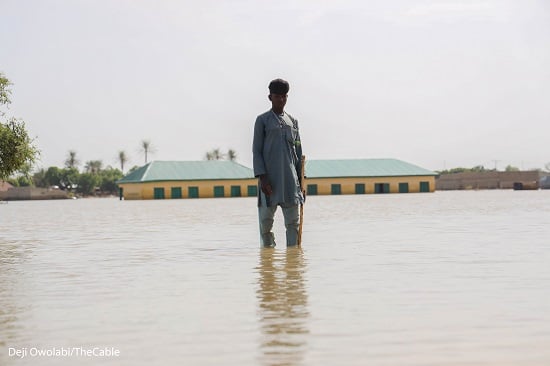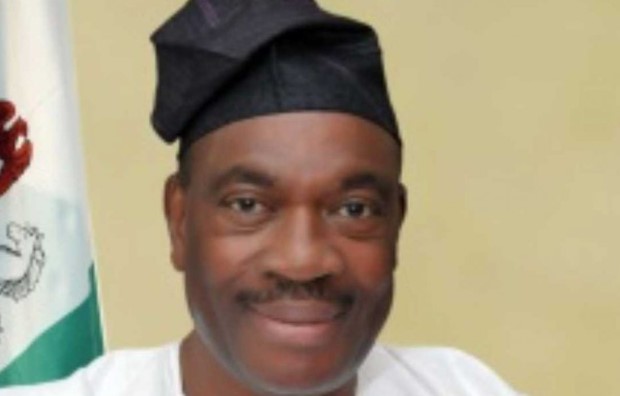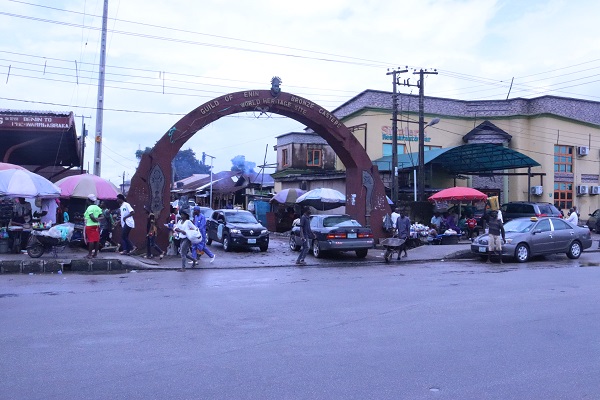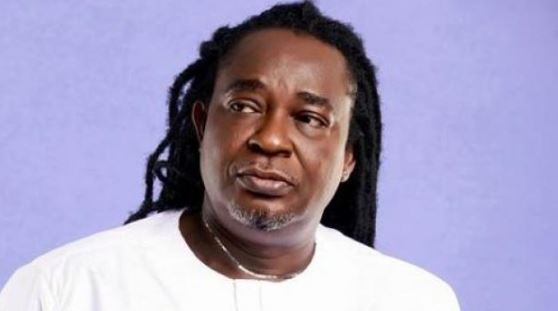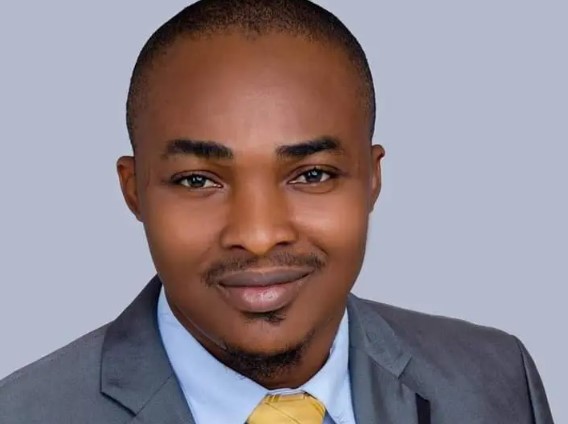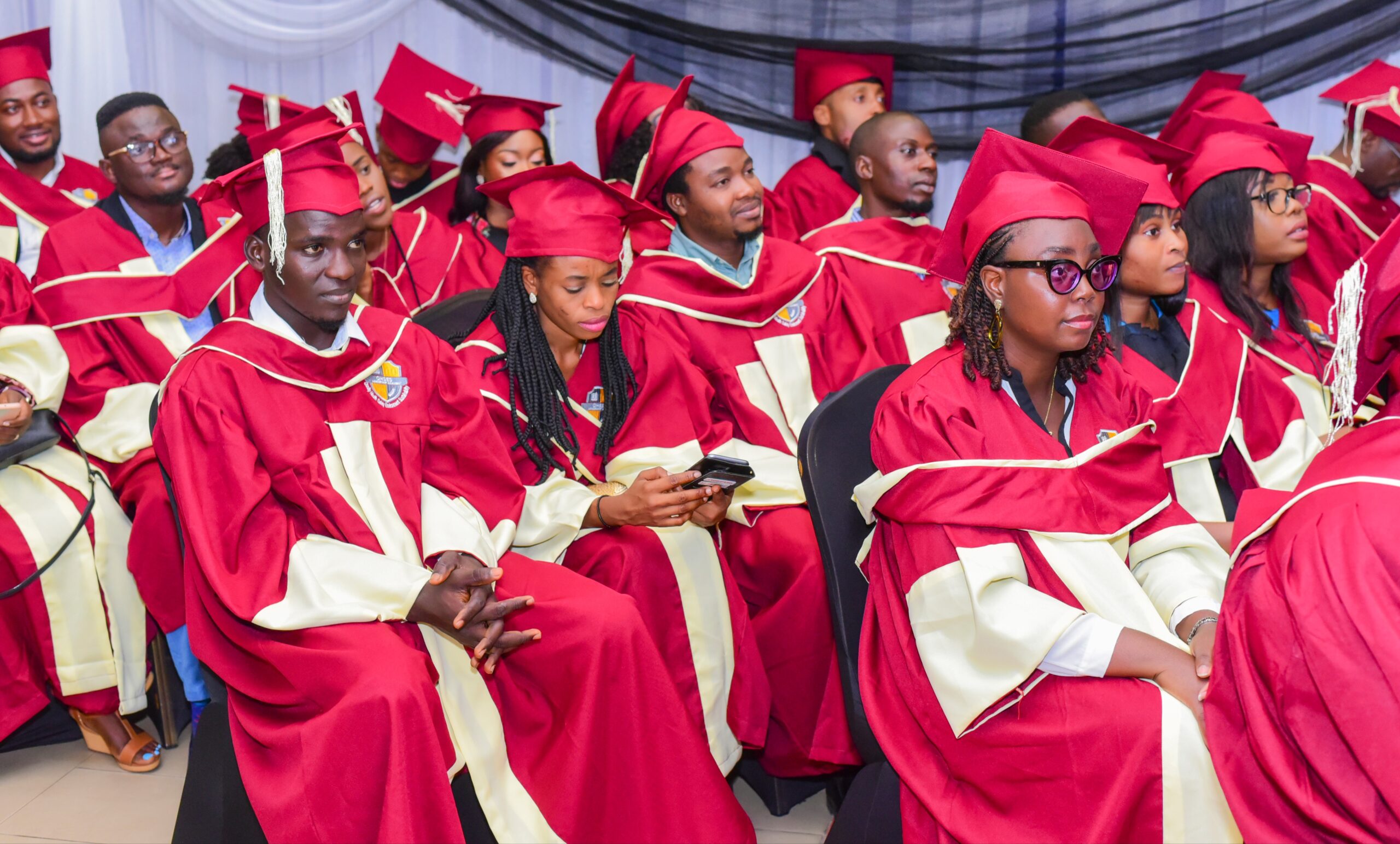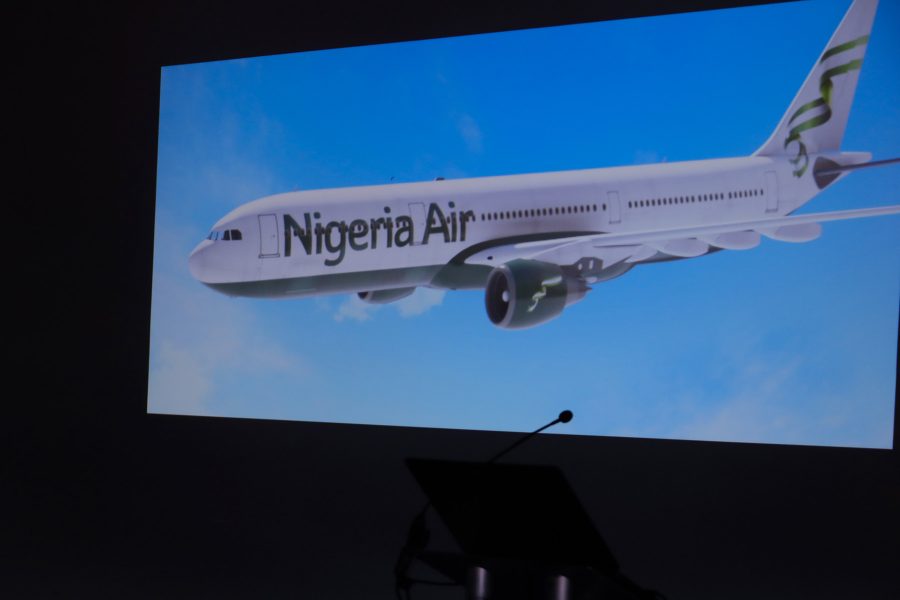a random man posing for the camera inside the flooded water in Jigawa state. 2022
BY WEALTH DICKSON OMINABO
The 2022 flood tells a sad story- it is a tragedy with a complex plot with themes of displacement, hunger, and scarcity. In it are sub-themes of death, negligence, and fecklessness—every victim with his own story, and every community their tales and narratives detailing their plights. Citizens in affected areas live in uncertainty, despair, and fear, while a few struggle to hope and display love and compassion amid adversity.
According to reports, about 603 people have died, and more than 1.3 million have been displaced, while over 108,393 hectares of farmlands have been destroyed across the country. Some flood-affected states include Bayelsa, Rivers, Delta, Edo, Lagos, Kano, Adamawa, Jigawa, Benue, and Borno. This year’s flood is believed to be the worst that Nigeria has experienced in decades, as it has created humanitarian crises and compounded economic challenges in the affected areas. Some communities are inaccessible and cut off from goods and services. In September, Rann and Damasak local government areas in Borno state, host areas of many Internally Displaced Persons (IDPs), could only be accessed by helicopter, and commuters along Lokojo Abuja road were left stranded because of the flood. The flood also resulted in a major tragedy in Anambra State, where people had to rely on boats as major roads had been destroyed.
Bayelsa appears to be one of the worst affected States in the year’s flood, as about seven out of the eight local government areas in the state are submerged in water, 300 communities and villages have been totally or partially submerged in water, 700,000 persons have been displaced or affected. The two major entry points into the state by road from Delta and Rivers States are impassable as water has washed off most parts of the road. Essential goods and services cannot come into the state, creating economic and human security crises. Prices of goods and services have skyrocketed. Fuel price ranges from 550 to 750 naira in Yenagoa, the State capital, and even higher in the hinterlands.
Advertisement
Footages of the lived experiences of people across the state are pathetic. We have seen people cooking and living on the water; some sleep on the road for lack of shelter, and others surrender to fate and insist on living in flooded houses despite the danger. When I visited some impacted areas some days ago, I saw misery robed in human souls. I saw a people weaned of joy and peace as they lamented their ordeal and current predicament. Every visitor is seen as an emissary of hope who must carry their messages to the government and other development stakeholders. Their voices are a refrain of monotonous groans of hope.
Governor of Bayelsa State, Sen. Douye Diri, reacting to the impact of the flood last week, noted that the state was in a security and humanitarian emergency and appealed for multi-stakeholder intervention.
He said: “This year’s flooding has surpassed that of 2012, which is the highest we have witnessed so far. It has become a security emergency. Bayelsa is below sea level and when the flood comes, virtually everywhere is flooded. Even the Government House is being threatened.”
Advertisement
“On Thursday, we saw the road leading to Sagbama from Ekeremor had been badly damaged by the flood. Now, the road from Yenagoa to Amassoma, where you have the Niger Delta University has collapsed in three areas.
“It will cost the state billions of naira before those roads would be repaired. Also, there is individual losses in terms of houses that have collapsed as a result of the flood and the deaths we have witnessed.
Many reasons have been given as the causes for this year’s flood; the release of water from the Lagdo Dam in Cameroon, climate change, and other environmental factors. No matter what we believe as the remote and immediate causes of this present tragedy, one thing that this year’s flood highlights is the nexus between climate change, human security, and national stability. Climate change is referred to as a threat multiplier because of “its potential to exacerbate many of the current challenges and threats already being faced in some countries, such as infectious disease, terrorism, and conflict over scarce resources.”
This year’s flood and the tragedy witnessed across the nation again exposes our country’s fragility. If the release of water from a single dam in a neigbouring country could impact so gravely on our stability, it shows that as a nation, we can no longer treat environmental issues and other human security concerns with kid gloves. This national tragedy was long foretold, but state actors sat idle and made no commitment to preventing the national disaster beyond giving weather predictions and warnings about rainfalls.
Advertisement
It defeats every form of logic why governments have demonstrated apathy to the issue of flooding. It is saddening that a decade after the devastating impact of the 2012 flood, the government is still lethargic in the search for a sustainable solution to a national and security crisis of this dimension. This ongoing tragedy dramatizes the sustained culture of misgovernance in Nigeria and our leaders’ fecklessness in addressing national challenges.
This year’s flood should serve as a wake-up call to policymakers and government at all levels to reframe their security management strategies.
There is a need to retool the nation’s national disaster policies to focus on a preventive and actionable approach in response to national emergencies and crises. As politicians mount different rostrums around the country soliciting votes, we must put the issues of human security, environmental crisis, and the ongoing flood tragedy on the front burner. There is no better time for advocacy on issues that affect ordinary citizens than now.
Ominabo is the communications officer at the Goodluck Jonathan Foundation
Advertisement
Views expressed by contributors are strictly personal and not of TheCable.
Add a comment
